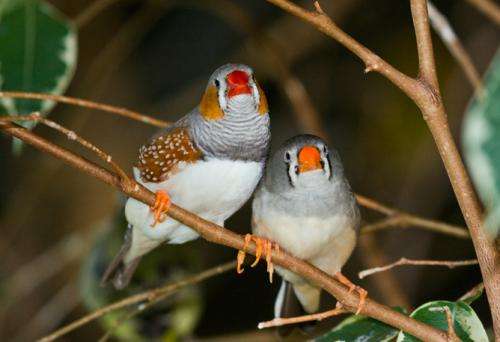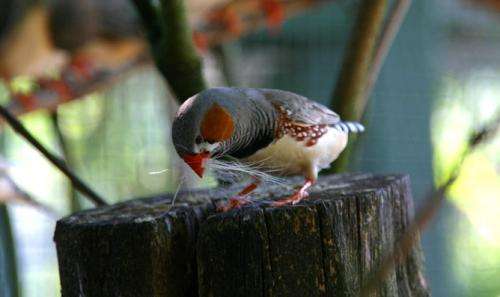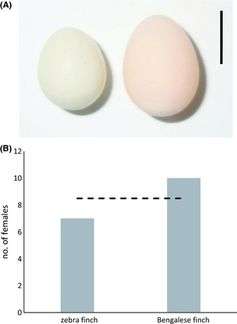Bad parenting could give zebra finches the evolutionary edge

Species must reproduce to survive, and animals have found unique ways of achieving this. For some, including us, it seems as though producing a few offspring that require extended care is the best strategy. For others, such as many coral reef fishes, many offspring that require little care appears better suited.
Brood parasitism is among the most bizarre breeding strategies in nature. A brood parasite, such as a cuckoo, manipulates another individual into raising its young. Hosts do all they can to stop brood parasites from successfully reproducing, because they usually harm their own young. Brood parasites fight back, and the two species can become locked in a coevolutionary arms race.
Despite these troubles, not having to build a nest, incubate eggs or care for offspring allows brood parasites to produce more eggs than they would otherwise. This can make brood parasitism viable through evolutionary time.
But how can this bizarre breeding strategy evolve? Consider this example: if a bird lays its eggs over several days, but its nest gets destroyed before it completes its clutch, it could salvage the remaining eggs by laying them in the nests of birds from other species. If the offspring was successfully raised by the unsuspecting host, this unexpected brood parasitism event may provide a stepping stone this behaviour to evolve further.
In a study published today in Ecology and Evolution, we experimentally investigated this idea using captive zebra finches. These finches are well studied and commonly used in behavioural experiments.
We conducted experiments on 17 pairs of zebra finches. Each experimental aviary contained three identical nests as well as nesting material. When the birds chose a nest and laid their first egg, a zebra finch egg was added to one of the additional nests, and a Bengalese finch egg was added to the other. Bengalese finches are a closely related to zebra finches, and lay eggs that are larger and sometimes different in colour to zebra finch eggs.

The active zebra finch nest was then removed from the experimental aviary. The finch was left with the choice of laying its next egg either in a nest containing a zebra finch egg, a nest containing a Bengalese finch egg, or somewhere else in the aviary. If the eggs were not preferentially laid in nests containing other zebra finch eggs, it may suggest that they either do not use cues from the eggs in the nest to make a decision where to lay their own egg, or that they show no preference for what nest their egg is laid in following destruction of their own nest.
We found that there was no significant difference between where the next egg was laid. Ten of the zebra finches laid their next egg in the nest containing a Bengalese finch egg and seven laid in the nest containing another zebra finch egg. This is the first experiment to suggest that an unexpected change in conditions – in this case, nest destruction during egg laying – may provide an evolutionary pathway to brood parasitism in birds.

These are the kinds of biological leaps that Darwin discovered when he first studied finches. And, even today, we are still learning.
Journal information: Ecology and Evolution
Source: The Conversation
This story is published courtesy of The Conversation (under Creative Commons-Attribution/No derivatives).
![]()
















